


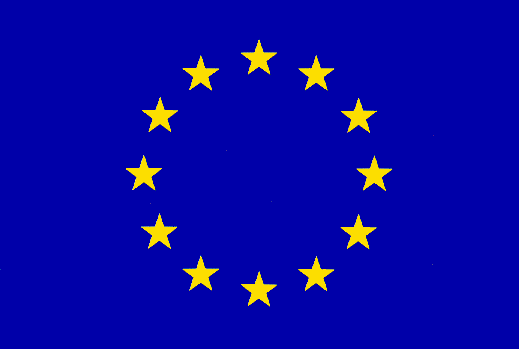

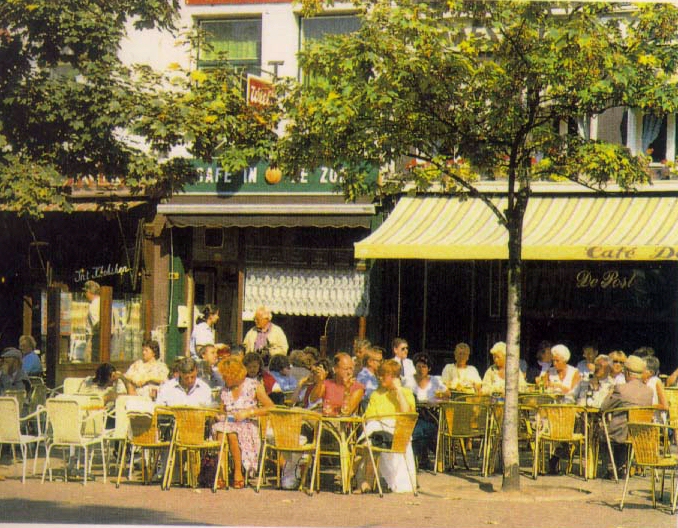

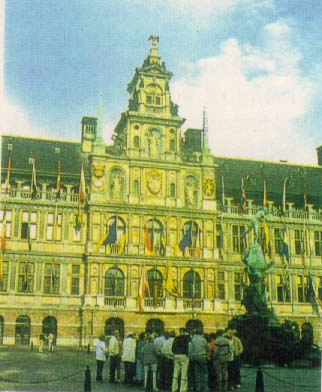

The purpose of this booklet is to provide you with a list of
helpful hints for making the most out of your European vacation.
As students, scholars, and visitors in a foreign country; you are
expected to conduct yourself accordingly.
Course Information
Students who enroll in the European Studies Program will earn six
(6) Radford University credits.
The European Studies Program Announces Study of the European
Community: Economic and Business Perspectives
| When: | June 1997 |
| Where: | University of Antwerp [Universitaire Faculteiten Sint-Ignatius Te Antwerpen] Ufsia. |
| Program: | ECON 495/ECON 574 (3 Cr) International Trade and the
Environment- This course examines the importance of environmental
considerations on trade and development In the formulation of
international economic and business policy. The course has
special focus on the European Community. It provides an
understanding regarding the origins of the trade and
environmental conflict and develops both commercial and economic
perspectives. Business majors will be allowed credit for this
course as MKTG 442 or ECON 340 upon request or as a special
topics course with consent of department.Instructor: Dr. Prahlad
Kasturi ECON 495/ECON 574/ACCT 471/FINC 471/MGT 471/MKTG 471/MGT 571/MKTG 571/MKTG 502 (3 CR) Special Topics in European Economics/business Studies. Study of the European Community and business activities regarding international trade, changing economics, cultural constraints, political environments, financial considerations, and management expertise. Class will provide students with the opportunity to research industry potential in Europe. Business majors can gain credit for any of the cross listed courses above. Instructor: Dr. Prahlad Kasturi and University of Antwerp faculty. |
| Description: | Classes are taught in English. They are intensive, each meeting three hours per day, four times per week. Excursions to EC Headquarters in Brussels, an American firm doing business in Europe, a Belgium firm with US ties, and a major seaport are generally included. Additional field trips to other local points of interest will be arranged. Directed study (for graduate students), electives, and follow-up language courses are also available. |
| Estimated Costs: | $2900 for excursions, lodging and tuition for 6 credits. Does not include airfare, meals and other incidentals. The cost has been estimated upon a group of 8 students enrolling in the program. It will be lower if there are more than 8 participants. |
| Contacts: | Dr. Prahlad Kasturi, Davis 147,(540) 831-5884 |
| Information: | http://www.runet.edu/~econ-web/belgium.html |
Course Outline
Course: Econ 495 Environment and Trade
Instructor: Dr. Prahlad Kasturi, Professor & Chair
Section Numbers: 01
Office Room: Davis Hall 147
Prerequisites: None
Phone: (540) 831-5884 Office; (540) 831-5100 Lv. Message;
(540) 763-9160 (Residence)
Instruction Room: TBA
Session Hours: TBA
Office Hours:TBA (Consultation by Appointment)
Source Texts:
Environment and Trade: The Relation of International Trade and
Environmental Policy by Seymour Robin & Thomas R. Graham,
Allanheld, mun Publishers, 1982.
The Environmental Effects of Trade published by OECD,
1994.
Greening the GATT: Trade, Environment and the Future by
Daniel C. Esty, Institute for International Economics, 1994
Course Outline:
The course objectives are:
Grade Assignment:
| Case Study | = 100 points |
| 1 examination | = 100 points |
| In-Class Assignments | = 100 points |
| Grade assignment on the basis of Total | = 300 points |
| Examination Date: | |
| July 15, 1997 | Final Examination (tentative) |
Case Study Requirement:
Part I: Issues of Environment and International Trade in
Perspective
Topic 1. Introduction to patterns of international trade in the
EC
Topic 2. Trade barriers: A commercial perspective
Topic 3. Trade repercussions of Environmental Policy: An economic
perspective
Part II: Origins of Trade and Environmental Conflict
Topic 4. Conflict or convergence
Topic 5. Making trade work for the environment
Topic 6. GATT and WTO roles in fixing trade policy
Part III: Developments in Trade and Environment Dispute
Settlements
Topic 7. Trade liberalization and environmental policy
Topic 8. Trade measures as leverages
Topic 9. Extraterritoriality of environmental legislations
Topic 10. Competition, Ecoduties and Harmonization.
Part IV: Role of OECD in greening trade
Topic 11. Procedural reforms
Topic 12. International Environmental Agreements
Topic 13. Scale of Trade Measures
Part V: Outstanding Trade and Environmental Issues in Specific
Sectors of the European Community
Topic 14. Agriculture
Topic 15. Forestry
Topic 16. Fisheries
Topic 17. Endangered Species
Topic 18. Transport
Topic 19. Hazardous Waste
Additional References:
Western Europe
Northern Europe
Southern Europe
Procedure of classes
Currency
Passport
Health
Photography
Purchases
Electric Appliances
Packing
Supplies
Traveling
Books
Language
The City of Antwerp
Location and transportation
The going out life
Shopping and food
Art and Diamonds
Information and pictures arranged by Teresa Grubb, Secretary
of the Department of Economics.
![]() Go Back to top
Go Back to top
Procedure of Classes
Conduct
Monetary Exchanges
HOTEL
Can I check in?
kan ik inchecken?
Can you tell me how to get to....
Kunt u mij de weg naar ... vertellen?
Could you please give me a wake-up call at..
Kunt u mij alstublieft wekken om......
I would like to change rooms
Ik will graag van kamer veranderen
would like to check out
Ik will graag mijn rekening betalen
Is there a message for me?
Is er een boodschap voor mij?
SOCIAL
Yes
ja
No
nee
I have lost my way
Ik ben de weg kwijt geraakt
Help me please!
Kunt u mij alstublieft helpen!
Would you take a picture for me?
Kunt u een foto voor mij nemen?
What is your name?
Wat is uw naam?
How much is the postage to U.S.?
Hoeveel port is het naar Amerika?
Where is the post office?
Waar is het post kantoor?
hello
hallo
My name is.....
Ik heet....
Nice to meet you
Leuk met uw kennis te maken
how are you?
Hoe gaat het?
I beg your pardon
pardon
All Is fine
Alles gaat goed
I don't understand
Ik versta het niet
Where it the bathroom?
Waar is het toilet?
bye
dag (or) doei
Thank you
Dank u
I am from the U.S.
Ik kom uit Amerika
May I use the phone?
Mag ik uw telefoon gebruiken?
Can you do me a favor
Kunt u mij een plezier doen?
Good luck!
Succes!
Excuse me
Neemt u mij niet kwalijk
Do you speak...
Spreekt u....
Good morning
Goede morgen
Good afternoon
Goede middag
Good evening
Goede avond
Good night
Goede nacht
RESTAURANT
A table for...
Een tafei voor...
Bring me a menu
Het menu alstublieft
May I order?
Kan ik bestellen?
I want some water
Ik wil graag wat water
Is there a service charge?
Is dit inclusief de bediening?
Do you accept credit cards?
Kan ik met een credit kaart betalen?
I don t think this Is what I ordered..
Ik geloof nlet dat ik dit besteld heb
What kind of dressing do you have?
Wat voor sla saus heeft u?
What is the special?
Wat Is het menu van de dag?
Just a small portion please
Maar een klein portie alstublieft
A bottle of beer (wine) please
Een fles bier (wljn) alstublieft
May I have the bill please
Mag ik de rekening zien alstublieft
Medium-rare
Half gebraden
Well-done
Door gebraden
It was delicious
Het was heerlijk
SHOPPING
Can you give me a discount?
Kunt u mij korting geven?
I want a hair cut
Ik wil mijn haar laten knippen
Do you have any chance?
Heeft u wissel geld?
Would like a receipt
Ik wil graag een bon hebben
Do you have a cheaper one?
Heeft u een goedkopere?
I will take this
Ik neem deze
It is too expensive
Dat kost teveel
Can you repair this?
Kunt u dit repareren?
How much is it?
Hoeveel kost het?
May I try it on?
Mag ik het aandoen?
Can I see another one?
Kan ik een ander model zien?
Do you sell....
Verkoopt u ook......
Do you have any other colors?
Heeft u nog andere kleuren?
I am Just looking
Ik wil alleen wat rondkijken
Where can I get...
Waar vind ik....
EMERGENCY
Help
Help
Thief
Houd de dief!
There Is fire!
Er is brandl
I had my wallet stolen
Mijn portefeuille is gestolen
I have lost my passport
Ik heb mijn paspoort verioren
I am not feeling well
Ik voel me niet goed
Where is the nearest pharmacy?
Waar is de dichtbijzijnde apoteek
I want to lie down
Ik wil gaan liggen
It Is urgent
Het is dringend
Where Is the embassy/consolate?
Waar is de ambasade/ het consulaat
Call the police please
Belt u alstublieft de politie
Call the abulance please
Belt u alstublieft een ziekenwagen
![]() Go Back to top
Go Back to top

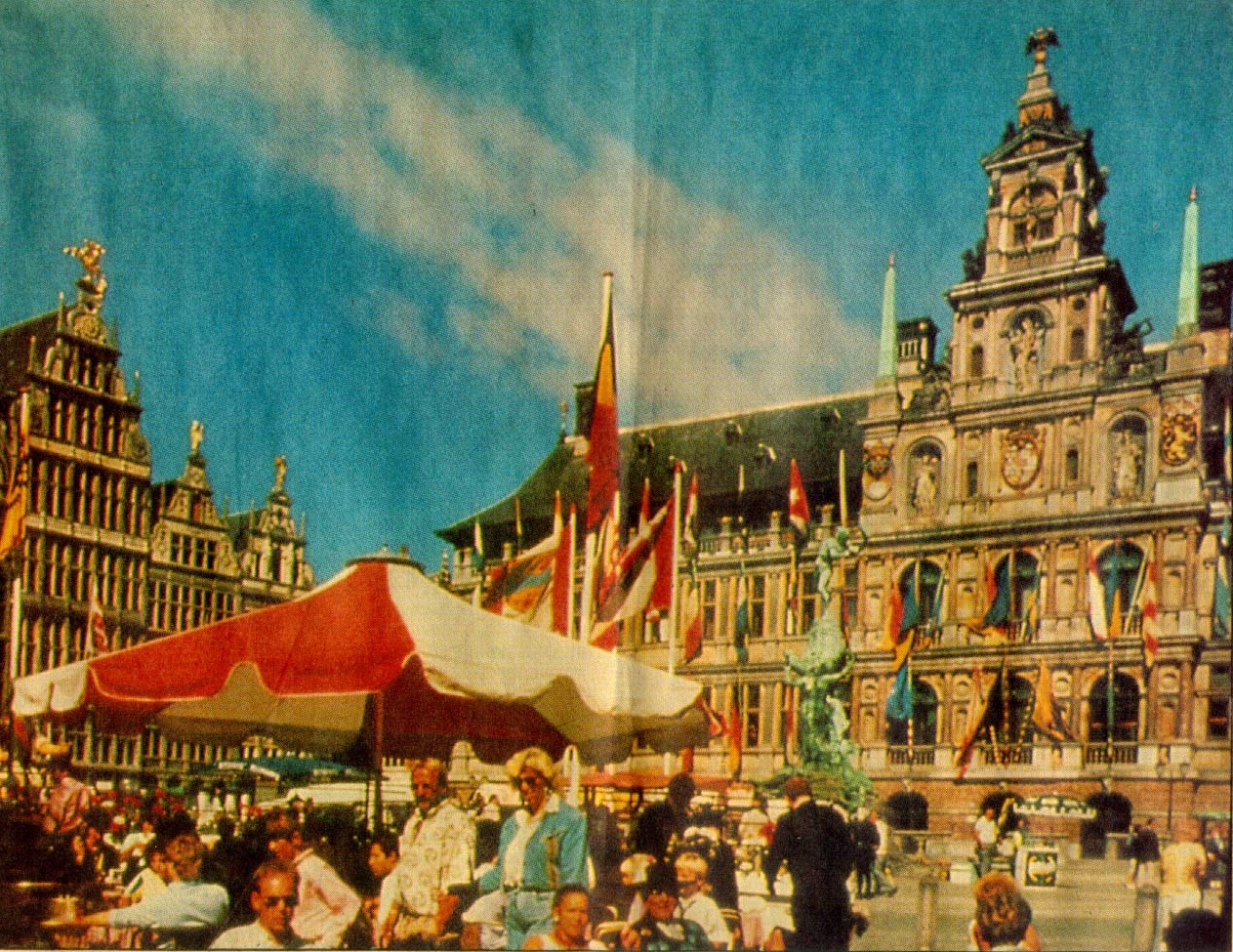
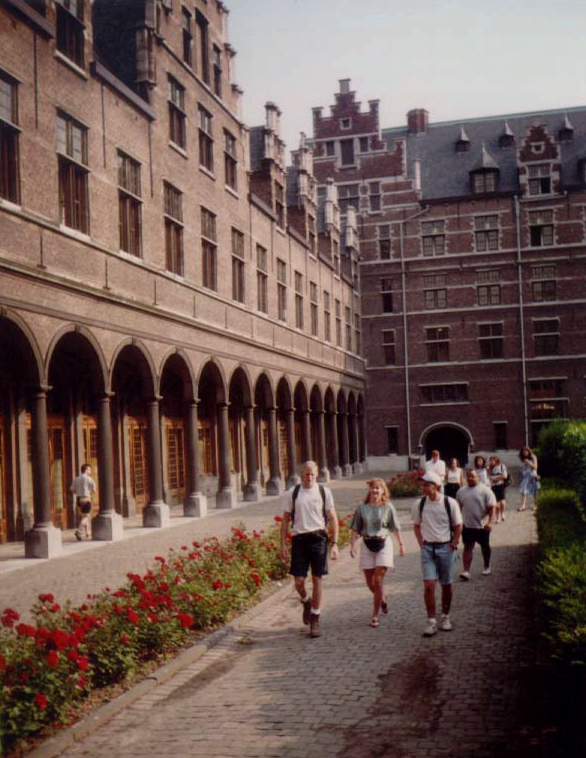
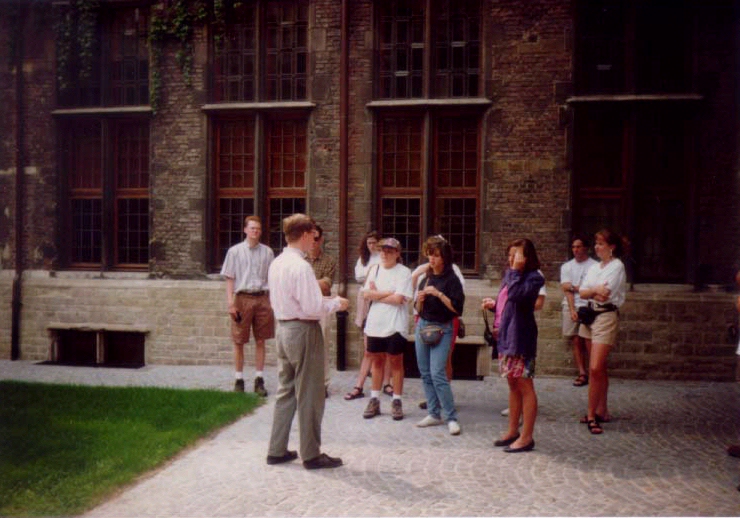
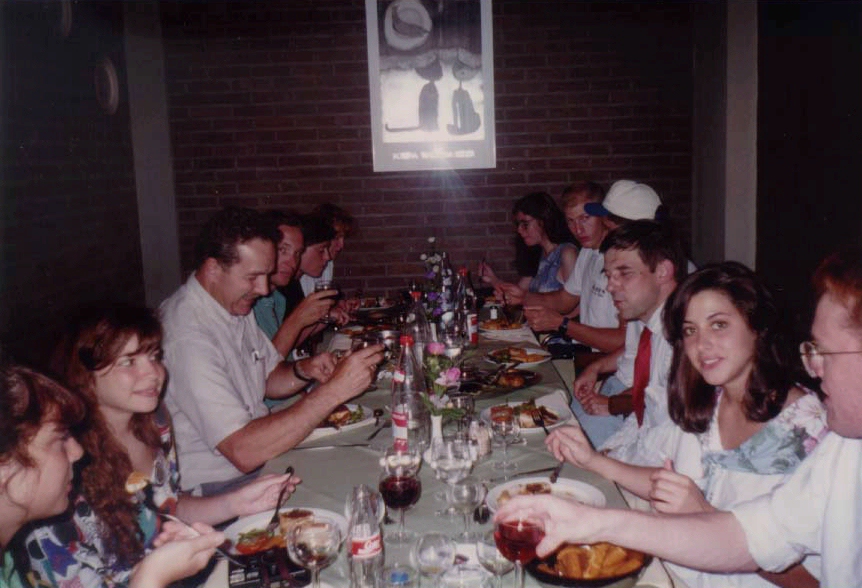
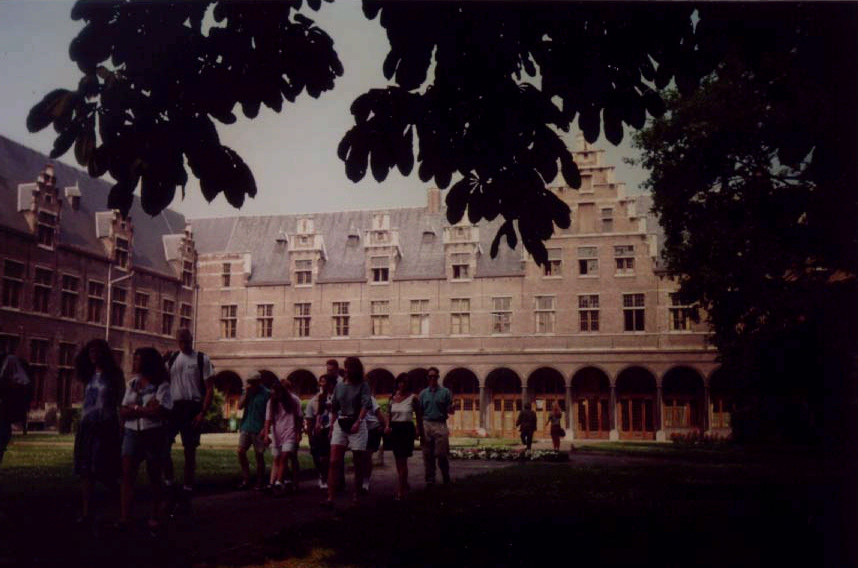
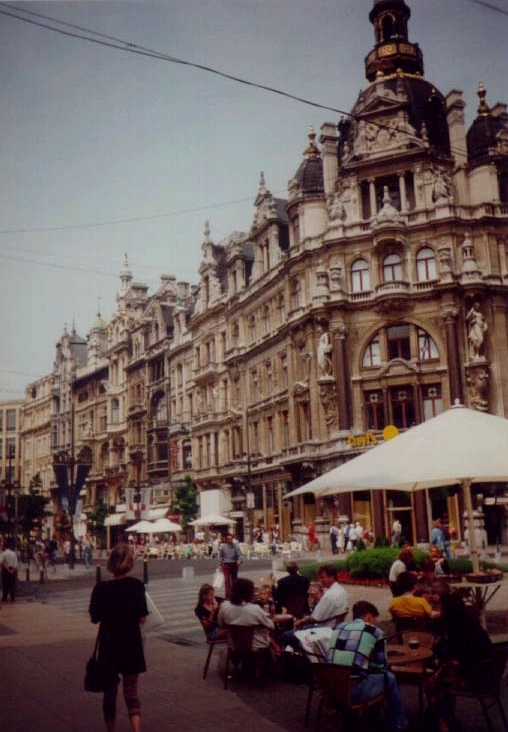
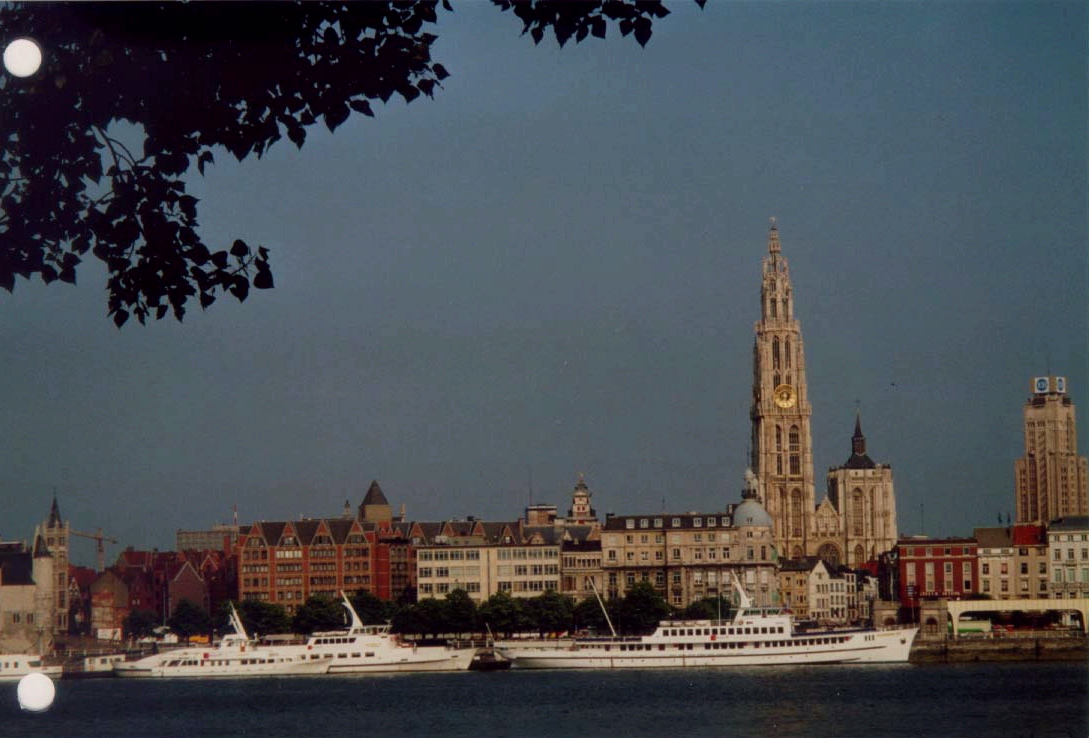
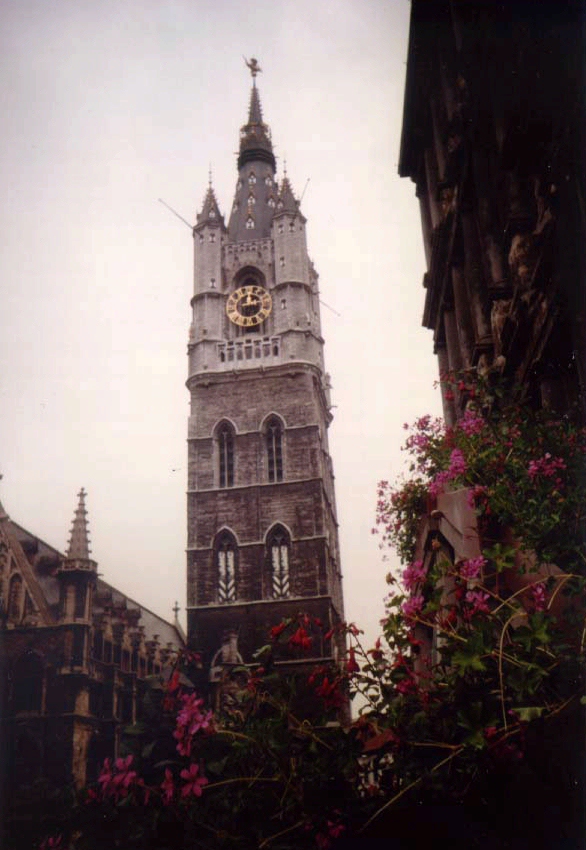
University of Antwerp
The City of
Antwerp
HandiLinks to
Belgium -
Antwerp
Digital Metropolis
Antwerp
Europa Homepage
Earth Story Page
Assistance with scanning of the pictures
and text by Dr. Michael Hayes, Associate Professor of Department of Economics and Lori
Stilwell, Economics Workstudy Student.
Pictures and Information on Get, Set, Ready GO! provided by Dr.
Fess Green, Department of Management and Marketing who taught in the
European Studies Program in 1993.
Assistance with placing page on-line by Dr. George Santopietro, Associate
Professor, Department of Economics.
Updated by Katherine Gagnon.
Last Updated: .